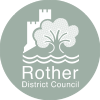The inspecting Environmental Health Officer will begin the visit by asking to see this, if it is not present or one has not been adopted it will not be possible to award a “very good” 5.
The extent and complexity of the system required depends on the size or nature of your business. The person responsible for implementing and maintaining the food safety management systems must have appropriate Food Hygiene and Safety Training.
What is HACCP?
HACCP is the worldwide food safety management system which can be adapted to suit all types and sizes of food business. It focuses on prevention of food safety problems before they occur and is accepted by international authorities as the most effective means of controlling food-borne diseases.
There are seven principles of HACCP:
- Conduct a hazard analysis
- Determine the critical control points (CCPs)
- Establish critical limits
- Establish monitoring procedure to control the CCPs
- Establish corrective action when monitoring indicates the CCP is not controlled
- Put in place procedures to confirm that the HACCP is working effectively
- Retain documentation for all procedures and records
Implementing a Food Safety Management system
It is your choice whether to use a generic system or to create one of your own.
The Food Standards Agency has produced the Safer Food, Better Business pack to help you provide a basic system. There are a number of Safer Food, Better Business packs available, designed to meet the specific needs of different food businesses. For more information or to get a copy of Safer Food, Better Business pack, please visit Safer Food, Better Business
There is also a Safer Food, Better Business Online Guide available in 16 different languages which can help you implement the Safer Food, Better Business scheme and train your staff.
Low risk and very small food businesses
Low risk and very small food businesses only need very simple procedures and records in place, and we have produced our own systems to help you.
Our systems require you to complete a checklist that shows what you do in your business and then keep records of the food activities undertaken, on which day and any problems encountered. We recommend that you keep your records in a daily diary or record sheet:
- Download our Food Safety Procedures for Small Caterers
- Download our Food Safety Procedures for Community Food Provision
- Download our Food Safety Procedures for Home Based Meat Sales
- Download our Food Safety Procedures for Bed and Breakfasts
- Download our Food Safety Procedures for Childminders and Pre-School Nursery’s
- Download our Food Safety Procedures for Jam and Preserve Makers
- Download our Food Safety Procedures for Small Retail Food Business

